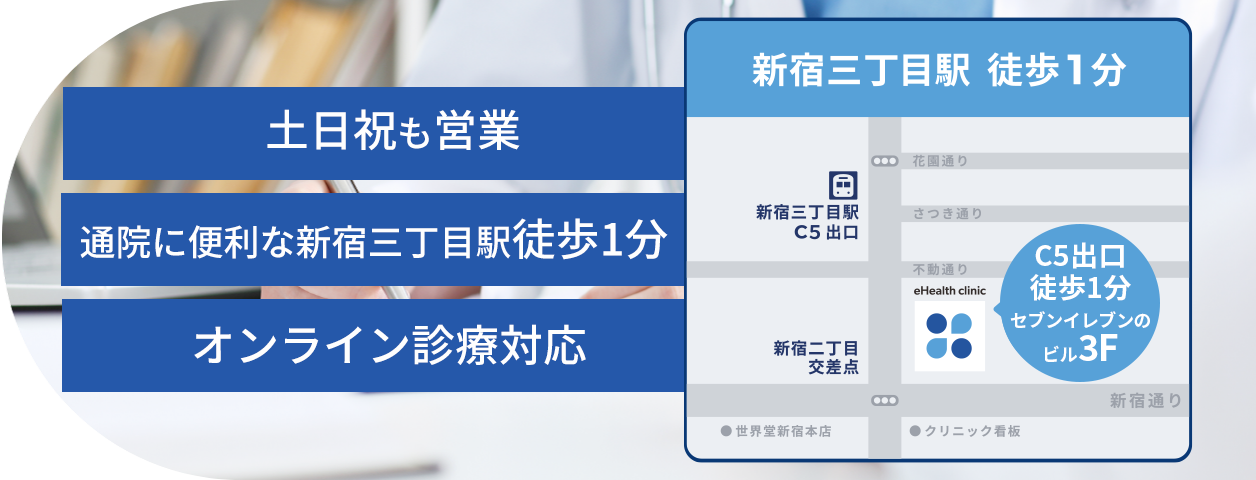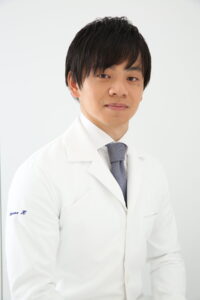不眠症は何科を受診すべき?病院に行くタイミングや症状別の診療科の選び方


Cystitis (acute cystitis) is a disease in which bacteria enter through the urine outlet (urethral opening) and multiply in the bladder, causing inflammation. Symptoms of cystitis include close urination and increased frequency of urination.
The main cause is bacteria in the intestines, such as E. coli. Even if these bacteria invade the urethra, they can usually be expelled from the body with urine before they multiply. However, if the immune system is weakened, the patient holds back too much urine, or is unable to urinate properly, bacteria can multiply in the bladder and cystitis can develop. If the bacteria invade the kidneys, it can progress to pyelonephritis, which can cause severe symptoms.
Cystitis is known to be particularly common in women. This is due to the fact that the urine outlet is easily contaminated and the urethra is shorter than in men.
Symptoms of Cystitis
Main symptoms
The following symptoms of cystitis may occur
Increased frequency of urination
Blood in the urine
Pain when urinating (often toward the end of urination), etc.
Symptoms of Advanced Pyelonephritis
Advanced pyelonephritis may cause the following symptoms
High fever
Fatigue
Back pain
etc.
■Reservation fee 5,500 yen (tax included)
Reservation fee will be charged when you make a reservation. If you change your reservation within 3 business days of the reservation date, you will not be charged a new reservation fee.
Please note that cancellations are generally not refundable.
※Reservation fee is charged only when you make a reservation through the dedicated reservation form.
※Reservation time is only an estimate and may vary depending on other patients’ treatments, such as emergency response and urgent response.
※If you cancel a self-pay treatment reservation made through the dedicated reservation form on the day of the reservation, a cancellation fee of 100% of the cost will be charged.
Urination problems related to cystitis are said to be common. However, there may be other diseases involved, such as urinary tract stones, interstitial cystitis, or cancer, so it is important to detect and treat them early. Also, if bacteria spread to the kidneys, you may develop pyelonephritis, a serious condition that can affect your health.
Therefore, if your symptoms do not get better for a long time or if you have any troubling symptoms, you should consider seeing a urologist or your family doctor.
We ask that patients with symptoms such as pain when urinating come for an initial consultation because they may need various tests and other procedures.
Antibiotics
The most common treatment for cystitis is the use of antibiotics that kill bacteria. The medication often improves symptoms in about 24 hours, and the patient is cured within a few days.
Treatment for Pyelonephritis
If you have signs of pyelonephritis, such as a high fever, you may need to take antibiotics for about two weeks. In some cases, you may need to be hospitalized and get antibiotics through an IV. At first, you may have symptoms such as loss of appetite and dehydration, but as soon as the fever goes down and your appetite comes back, you may switch from IV to oral antibiotics and continue the treatment. Also, if you stop taking the medication halfway through the treatment because your symptoms have improved, the bacteria may survive and come back. Therefore, it is important to finish all the prescribed medicines.
It is important to drink plenty of water to flush out the bacteria from your bladder through urine. Also, since having urine in your bladder makes it easier for bacteria to grow, do not hold it and try to urinate when you feel the need to.
Constipation can cause cystitis when stool stays near the anus. Therefore, it is important to prevent constipation by eating more fiber.
Bacteria in the vagina and anus can enter through the urethra opening, so it is best to keep your vulva clean. Wipe from front to back after a bowel movement, and change sanitary products often.
Washing with a warm shower is enough, as soap can cause irritation.
Some people may feel embarrassed or nervous about going to a hospital or clinic, but there are no over-the-counter treatments available and cystitis may not go away on their own, so do not ignore them and seek proper treatment at a medical facility. If you have any questions about cystitis, talk to your doctor.
eHealth Clinic Shinjuku Clinic provides medical treatment for cystitis.
Although the treatment is at your own expense, we also offer online treatment, and we give the utmost consideration to patient privacy so that anyone can visit our clinic and receive treatment with peace of mind. Please feel free to consult with us if you have any concerns.

Examination, testing, and prescription for cystitis : 11,000 yen (tax included)
■Reservation fee 5,500 yen (tax included)
Reservation fee will be charged when you make a reservation. If you change your reservation within 3 business days of the reservation date, you will not be charged a new reservation fee.
Please note that cancellations are generally not refundable.
※Reservation fee is charged only when you make a reservation through the dedicated reservation form.
※Reservation time is only an estimate and may vary depending on other patients’ treatments, such as emergency response and urgent response.
※If you cancel a self-pay treatment reservation made through the dedicated reservation form on the day of the reservation, a cancellation fee of 100% of the cost will be charged.
https://ehealthclinic.jp/medical/outpatient-fever/
https://ehealthclinic.jp/medical/std-sti/
https://ehealthclinic.jp/medical/sleep-medicine-service/
【1 minute walk from Shinjuku Sanchome Exit C5】
Director speaks English and Chinese. Available on Saturdays, Sundays, and national holidays. Open until 20:00 on weekdays. 24-hour web reservations available.Internal medicine, nephrology, allergology, urology.
Address: Shinjuku Dori Toyo Bldg. 3F, 2-6-4 Shinjuku, Shinjuku-ku, Tokyo 160-0022, Japan
・1 minute walk from Shinjuku Sanchome Station (Exit C5) on Tokyo Metro Marunouchi Line, Tokyo Metro Fukutoshin Line and Toei Subway Shinjuku Line
・7 minutes walk from Southeast Exit of JR Shinjuku Station
・5-minute walk from Shinjuku-Gyoenmae Station (Exit 2) on Tokyo Metro Marunouchi Line
If you have any questions, please don’t hesitate to let me know.
Email:contact@ehealthclinic.jp

Hoichi Amano (M.D.,PhD)
・Administrator of eHealth clinic
・Visiting lecturer (School of Public Health,Teikyo University)
・Locum Doctor (Teikyo University Chiba Medical Center)
・Occupational health physician for several companies
• Education
2018 – 2021 Doctorate in Public Health, Teikyo University Graduate School of Public Health, Tokyo, Japan
2016-2018 Master’s Degree in Public Health, Teikyo University Graduate School of Public Health, Tokyo, Japan
2004-2010 M.D., Saitama Medical University, Faculty of Medicine, Saitama, Japan
• Certifications
Board Certified Member of the Japanese Society of Internal Medicine
Board Certified Nephrologist of the Japanese Society of Nephrology
Board Certified Member of the Japanese Society of Anti-Aging Medicine
Occupational Medicine Physician
Master of Public health
Doctor of Public health
If you have any questions or concerns, please feel free to contact us here.(We will respond during business hours.)
https://ehealthclinic.jp/contact/